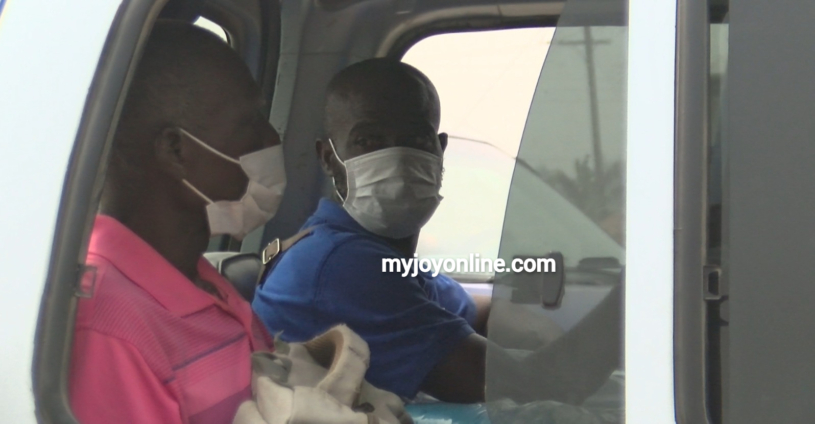
Audio By Carbonatix
If you abandoned your masks, it’s time to grab them as Accra earns the unenviable title of one of the cities in the world with the worst air quality.
IQAir, an air quality monitoring centre with more than a dozen sensors around the country, has ranked Accra's air quality as the worst, surpassing Mumbai in India and Wuhan in China.
Researchers are warning that this year’s harmattan is about to get worse, with the dust season expected to peak in the coming days.
Analysts with Clean Air Fund, including Victoria Owusu Tawiah, expressed concern, stating that "during February, we reach the peak of the harmattan.
"Mostly, the dust levels and concentration are quite high in February. Getting to the latter parts of February, conditions are expected to improve, thereby improving air quality over Accra."
Joshua Asamoah, a Senior Meteorologist with the Ghana Meteorological Agency, emphasises the variability of seasons, noting that "when we compare this year to that of last year, we can see we are getting the peak somewhere around late January into February."
The World Health Organisation (WHO) underscores the severe impact of air pollution on health, especially PM2.5 (tiny particles in the air).
Annual average concentrations of PM2.5 should not exceed 5 μg/m3, yet Accra's current situation surpasses these limits. Ghana’s air quality predicament is significantly attributed to the ongoing harmattan season, exacerbating pollution levels.
As Accra braces for the intensifying harmattan, residents are urged to take immediate precautions. With experts advising on the need for face masks, especially for children, and the importance of indoor activities, the city is on high alert for the challenges posed by this year’s relentless harmattan.
Dr. Sandra Kwarteng Owusu, a Paediatric Pulmonologist and air pollution advocate, advises parents and caregivers to "keep the children indoors as much as possible.
"If they need to come outdoors, we encourage them to wear face masks."
She underscores the impact of the current humidity, stating, "A lot of children are coming down with respiratory tract sections.
"So we need to encourage caregivers and parents to hydrate children adequately, but we can wear the face mask."
This story was a collaboration with New Narratives. Funding was provided by the Clean Air Fund. The funder had no say in the content of the story.
Latest Stories
-
Pope Leo to tour four African countries in first major overseas trip of 2026
1 hour -
Ghana’s cocoa buyers owe banks up to $750m, raising fresh liquidity risks
1 hour -
Ghana reaffirms commitment multilingual education at International Mother Language Day event in UK Parliament
2 hours -
Nvidia forecasts first-quarter sales above estimates
2 hours -
FDA orders removal of mixed drinks containing both alcohol and stimulants from market by March
2 hours -
Nothing new; you just renamed Bawumia’s G4R policy GANRAP – Gideon Boako to Finance Minister
2 hours -
John Jinapor commissions MBH Power Ghana Ltd.’s energy meter manufacturing unit
2 hours -
Ukraine refutes claims linking it to Burkina Faso attack
3 hours -
A quiet ride through Kumasi: How a climate journalist is rethinking urban transport
3 hours -
NSA releases postings for 6,867 nurses and midwives
3 hours -
Africa’s $250bn climate finance gap: Ghana hosts summit to shift ESG from reports to real investment
3 hours -
ECG outlines key factors driving higher electricity consumption
3 hours -
Accra’s power demand can consume Akosombo output – ECG
3 hours -
Award-winning photographer, Tolani Alli encourages creatives to build lasting impact
3 hours -
5G by 2027: Gov’t directive puts telecom regulator on the clock
4 hours

